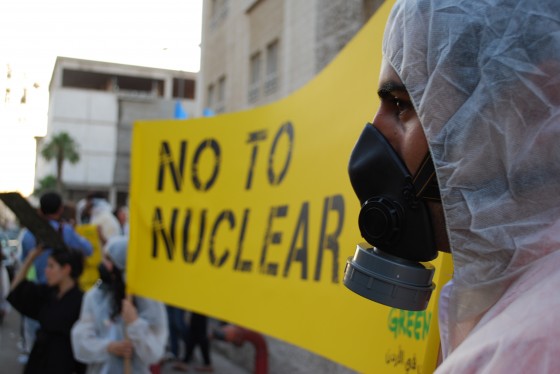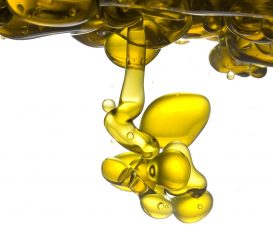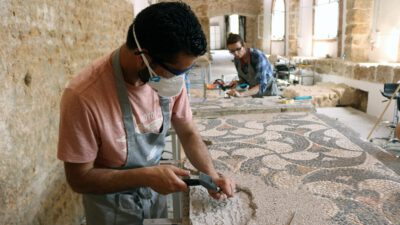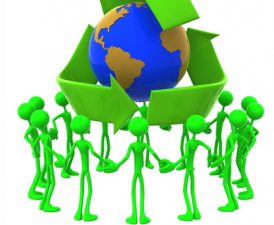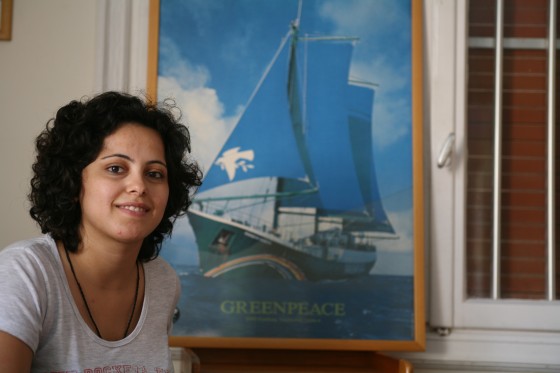 We speak to Greenpeace campaigner Raefah Makki about nuclear power, the Arab Spring and what she would do if she were president for the day
We speak to Greenpeace campaigner Raefah Makki about nuclear power, the Arab Spring and what she would do if she were president for the day
Greenpeace is one of the most recognizable green organisations in the world and the fact that it has branches scattered across the globe is part of the reason why. Greenpeace first came to the Middle East in 1986 with a wider agenda aimed at the Mediterranean and has since become an influential figure in the environmental movement in the region. As well as a presence in Turkey, Israel and Lebanon, Greenpeace campaigners have also sprung up in Jordan to fight the country’s nuclear plans. I caught up with Raefah Makki, Greenpeace’s Arab world communications officer to talk about the organisation, its anti-nuclear stance and the impact politics has on the environmental agenda.
Aburawa: Tell us a little bit about yourself and why you started working with Greenpeace?
Makki: I started working with Greenpeace at the end of 2006 as a face-to-face fundraiser where my mission was to recruit financial donors to our campaigns. I moved into several positions within fundraising then the communications department and now I’m responsible for the communications in the Arab world.
How and when did Greenpeace first come to the Middle East?
Back in 1984, Greenpeace International set up a research programme to help define what their ‘Mediterranean Campaign’ should highlight. Campaigners decided on 4 issues: toxic pollution, destructive fisheries, the threat to wildlife habitats and the potentially catastrophic presence of nuclear installations, weapons and waste.
In 1986, when the first tour by a Greenpeace ship took place in the western Mediterranean, its message was very simple: Mediterranean governments were doing very little to implement their own agreements under the United Nations` Mediterranean Action Plan, which had been launched in 1975. Now, Greenpeace Mediterranean head office is based in Istanbul and runs oceans and climate campaigns in the region.
I understand you are based in Lebanon, what is the state of the environmental movement there?
The environmental movement in Lebanon has been struggling for the last two decades to achieve change. I have no doubts that environmental awareness is increasing in the public and media but political will is still missing.
What are the major barriers you face in the region?
The instability of the political infrastructure creates many barriers for environmentalists, especially as a major part of our work is to lobby decision makers and change policies. In addition, the absence of proper monitoring over environmental regulations makes violations easy to happen.
What are the major campaigns and successes you have worked on?
I have worked on an oceans campaign with the Lebanese team and we were able to raise the demand of establishing a network of marine reserves in Lebanon on both the political and media agendas. We also submitted the proposal of establishing the first marine reserve in Lebanon to the ministry of environment.
Activist in Jordan have been busy working on an anti-nuclear campaign. Could you tell us a little about why this campaign is important to Greenpeace?
The Greenpeace volunteer group in Jordan was formed as part of a wider GP Mediterranean project to consider the prospects for future campaign work in the Arab world. The volunteers are passionate about their environment and very aware of the dangers and risks of the nuclear power plant on their country. So far, they have successfully carried out four peaceful protests in Jordan in partnership with other local groups and communities to make the government reconsider this decision.
How do you think the Arab Spring will affect the way environmental issues are perceived in the region?
The Arab Spring provides a very promising chance for environmental changes. People who went on the streets to demand change in a peaceful way are aware of their fundamental rights, which include environmental issues… The region is witnessing a reformation process now, and there is a chance for environmental organizations to take part in this process and help shape the new regulations.
If you were president for the day, what one thing would you change to improve the environment in the region?
I would ask all Arab countries to stop using fossil fuels right now, to forgo their nuclear plans and make them adopt renewable energy resources.
:: Second image via Hamza Omari.
For more on Greenpeace see:
Greenpeace Raises More Questions Over Jordan’s Nuclear Plans
Greenpeace Lebanon’s ‘Generation C’: Young, Connected and Making A Difference
Greenpeace Responds To Israel Carmel Fire

